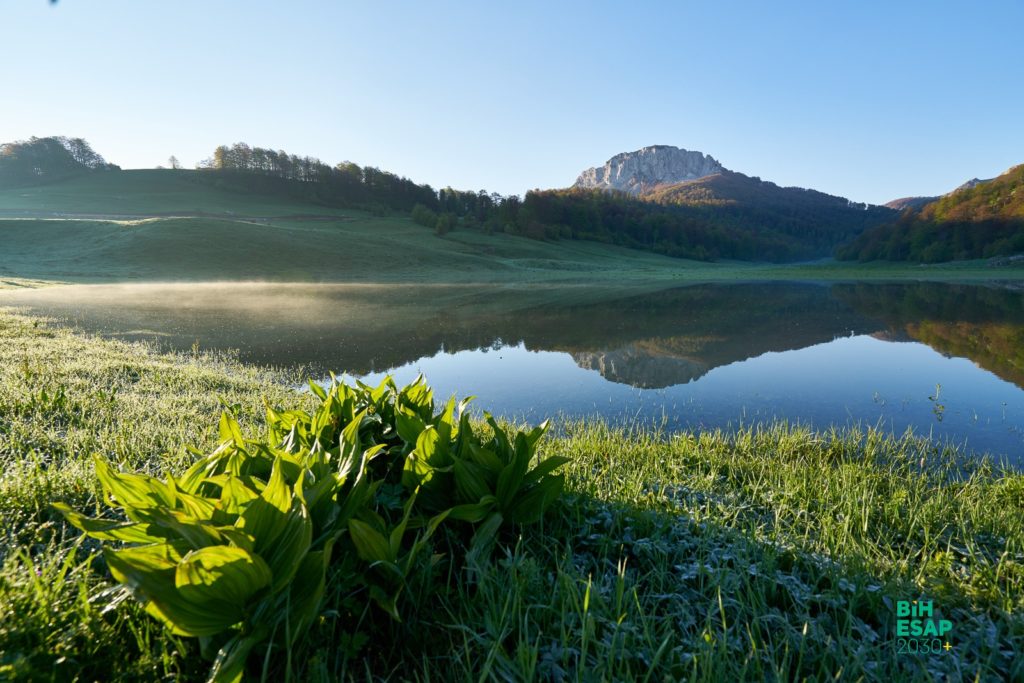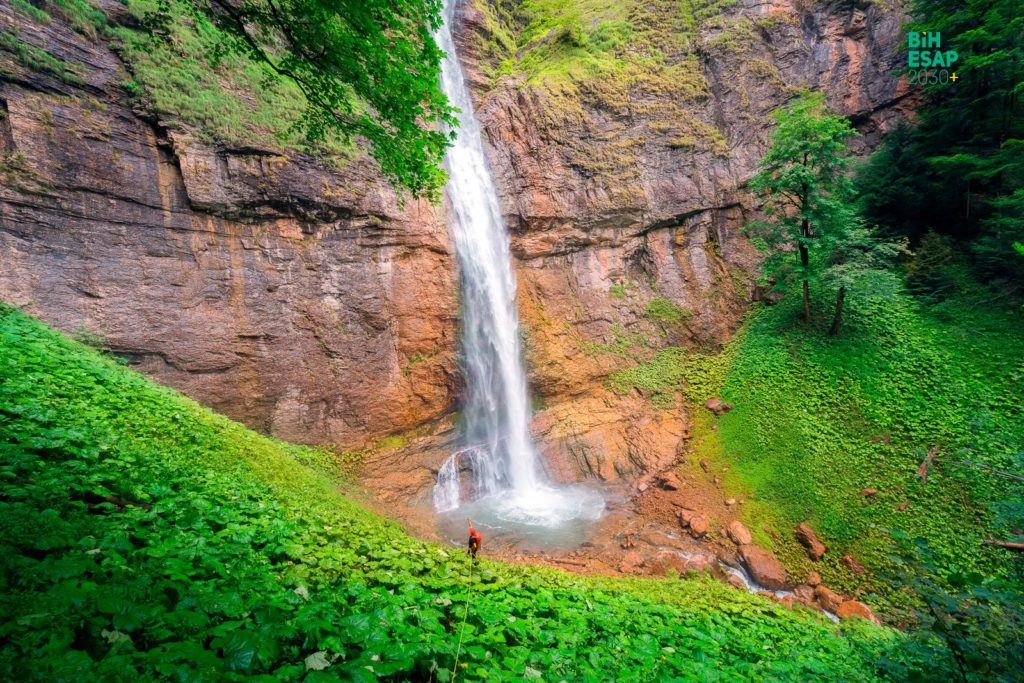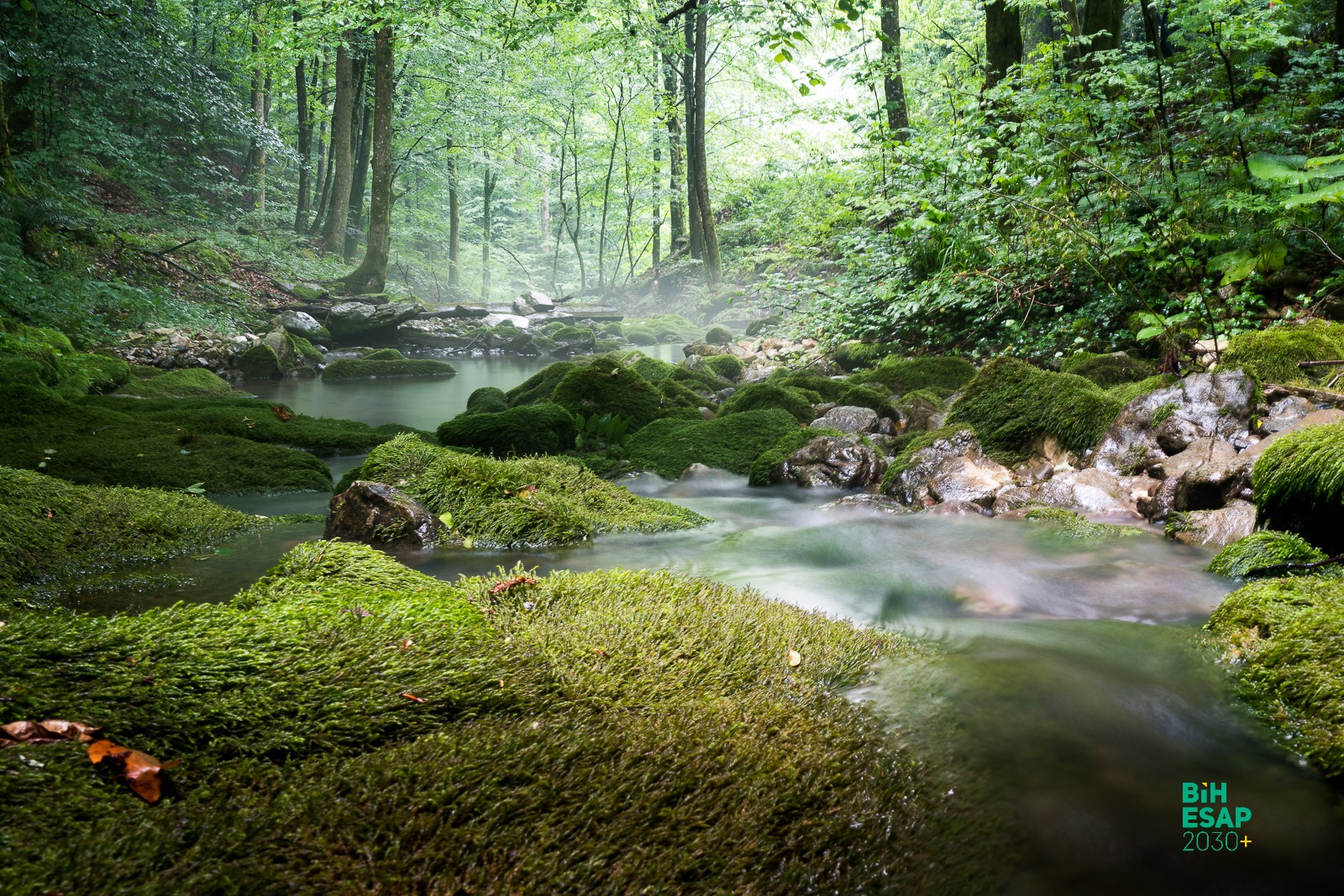Bosnia and Herzegovina is known as a blue heart of Europe due to its many pristine rivers and streams which are found here. Nevertheless, there is room for improvements in water management and protection.
BiH is developing an Environmental Strategy and Action Plan (BiH ESAP 2030+) which will, among other goals, assess the current state of water resources in BiH and define measures and activities aimed at preserving the quality and quantity of water resources.
Selma Čengić, PhD and Professor Svjetlana Lolić, PhD, are the experts working with water-related issues and solutions in the BiH ESAP 2030+ process.

What are the main challenges regarding water quality in BiH today?
Compared to other European countries and beyond, Bosnia and Herzegovina has significant water resources. Water is a key component of social, economic, and environmental development which are all interdependent, and the preservation of water quality and quantity is crucial.
Both surface and ground waters in BiH are at risk of further degradation, and the quality of water in some water streams is already significantly impaired. One of the main challenges in preserving the water quality is improving waste water drainage and treatment, including both waste water from industrial and other commercial polluters, municipal waste water and leachate from landfills. Agricultural activities in BiH also pose significant pressure on water quality.
Other important problems include hydro-morphological changes of surface water bodies. These occur because of the construction of dams, hydro power plants, embankments and other facilities as well as a lack of environmental flows, and lack of compliance around sanitary protection zones for underground wells according to existing laws.
There are also weaknesses in the process aimed at setting up a robust and systemic monitoring system, especially for ground waters, and there is no adequate supervision and control of this system.
What change is the BiH ESAP 2030+ strategy aiming to create for improving the water quality? Why is this process important?
The alignment of the BiH legislation with the EU acquis (i.e., EU’s environmental laws and regulations) and the EU Water Directive is crucial for the water sector, specifically from the perspective of the water quality improvement. Improvements in the water utility sector, implementation of EU requirements on drinking water and collection, drainage and treatment of urban waste waters will require more funding in the water sector.
BiHs process to progressively align with the EU acquis is going at a slow pace, and it is struggling to coordinate activities on harmonization across the different jurisdictions in BiH. BiH is also lacking human and financial resources for the application of the EU regulations.
Effective cooperation among the entities and Brčko District is essential for the improvement of the water quality. It is also important to secure cooperation and coordination of activities within the entities between the water sector and other sectors such as energy, spatial planning, agriculture, industry etc. aiming to harmonise the development plans in all these sectors. Water as a resource is vulnerable to pressures from different sectors. It is, therefore, necessary to minimise and/or eliminate these conflicting interests among the sectors.
A participatory approach has been adopted for the development of the Environmental Strategy and Action Plan of BiH. That will open up the process to a wide range of stakeholders and make it easier to meet some of the above challenges.
Are there currently problems regarding freshwater pollution in BiH? Does the situation differ between ground water and surface waters? What could be said are the main sources of water pollution?
There are different problems with the water quality in several water streams in BiH. The most serious, nearly alarming situation prevails in the River Bosna Basin, where the quality of surface water is poorest. The River Bosna Basin is one of the most densely populated areas and there is heavy pollution from municipal waste waters. We find many industrial facilities in this area; they are both the biggest consumers and the biggest polluters of water.
As for industrial waste waters, pursuant to the applicable legislation, all industrial producers are required to build their own facilities for preliminary treatment of industrial waters before their discharge into the public sewerage, or to treat their wastewater before discharging them directly into natural recipients. However, a considerable number of industries in BiH fail to apply these provisions, and as a consequence the water quality is severely affected in some water streams in BiH, and this poses a risk to ground waters and degradation of the environment as such.
Given that the industrial production in BiH is not nearly as well-developed as it was before the war, it was assessed that the impact of sanitary waste waters from households on the environment is much more significant at this point.
Another important problem is the lack of systemic monitoring of quality and quantity of the ground water. We experience climate change with more frequent, and longer periods of, drought, which most certainly contribute to reduced quantities of ground waters. In some areas, this problem is also exacerbated by their exploitation and excessive water abstraction.

When looking at the map we see that BiH is surrounded by rivers, and most of the bigger towns are situated right next to rivers. Increased rainfall is one of the potential consequences of climate change and the damages caused by potential floods would be significant. What are the possibilities to control floods and secure the human settlements by the big rivers?
In the past, mainly technical measures aimed at preventing harmful effects of waters were implemented, while non-investment measures were implemented on a much smaller scale. Due to the lack of structured measures in valleys along with water courses (new settlements, roads, business facilities), in some areas the risk of floods even increased over time. As a consequence, the problems in relation to protection from harmful effects of water became more complex at the end of last century and the beginning of this century, because of uncontrolled expansion of settlements in river valleys and inundation areas. Their protection requires significant funds.
In river valleys with fairly large settlements and cities, where the level of urbanisation has not significantly changed over the past 30 years, problems and flooding of big rivers (such as Bosna, Vrbas, Drina, and Neretva) has not been particularly grave. However, these areas record increasingly frequent torrential flooding and landslides. In upstream areas of small water courses, haphazard logging and deforestation have caused landslides, and also triggered torrential floods.
Another phenomenon has been recorded in valleys of big water courses. Very plain areas are easily affected and heavily inundated by floods. The area of Bijeljina, and Sana, downstream from the Sana Bridge, face problems with flooding of large agricultural areas.
Many EU members have understood that a passive approach to the protection from the harmful effects of water, has its constraints. As a result, the approach to this problem has changed through the EU Flood Directive (2017). The concept of protection from floods is set aside as the focus has shifted to efforts on minimising the flood risk, and development and implementation of non-structural measures.
How will the planned construction of mini hydropower plants affect water resources in BiH?
According to the Framework Energy Strategy of BiH until 2035, BiH adopted the Action Plan on use of renewable energy sources (RES) committing to achieve the share of 40% in the total final consumption by 2020. Renewable energy sources in the incentive system include hydropower plants up to 10 MW, wind power plants, solar power plants and biomass / biogas plants.
In BiH context, these small hydro power plants provide nearly the entire share (over 90%) of renewable energy in the incentive system.
The construction of small hydro power plants causes hydro-morphological changes of rivers. They also significantly affect biodiversity and disturb the whole ecosystem.
In general terms, the problem with the construction of small hydro power plants in BiH lies in their non-compliance with legal and contractual obligations. These would be defining the terms and conditions for their construction and conditions of their subsequent operation.
There is also a lack of application of EU standards and early public involvement in decision-making processes. The existing strategic entity documents about water management contain the obligation to ensure “ecological stability of the water management system” through environmental flow (EF). It is a dynamic category of these documents, adapted to the development of downstream communities of organisms. In practice, findings of environmental documents and environmental licences are often not adhered to. Small hydro power plants routinely fail to secure environmental flows to enable an unhampered development of downstream communities of organisms, and so-called fish passages to enable movement of fish upstream from their spawning areas.

More about the BiH Environmental strategy and Action Plan 2030+
The primary goal of the BiH ESAP2030+ project is to support the authorities of BiH, FBiH, RS and BD in the ESAP 2030+ development. The ESAP 2030+ document will comprise environmental strategies and action plans for FBiH, RS and BD, and actions that will be taken at the level of BiH. On a long-term basis, the project will improve the environment in BiH and support BiH on its path to EU membership.
The contents of the BiH ESAP 2030+ will address the following seven areas of the Environmental Acquis: Water; Waste; Biodiversity and Nature Conservation; Air Quality, Climate Change and Energy, Chemical Safety and Noise; Sustainable Resource Management; and Environmental Management.
The BiH ESAP 2030+ project is implemented by Stockholm Environment Institute (SEI) with the support of the Embassy of Sweden in BiH.







